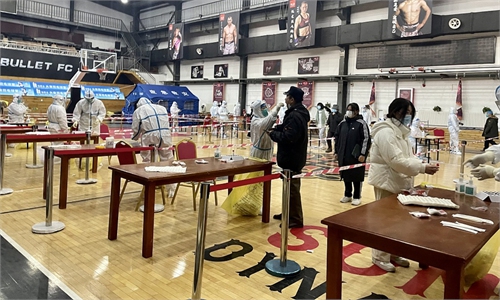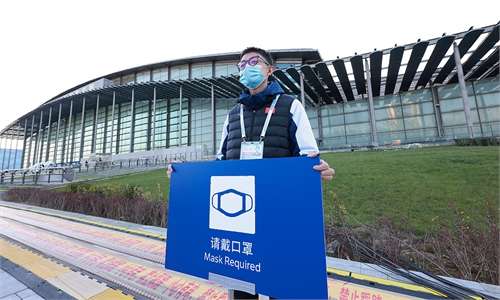Beijing tightens controls amid resurgence and Omicron, ‘to ensure safe Winter Olympics”
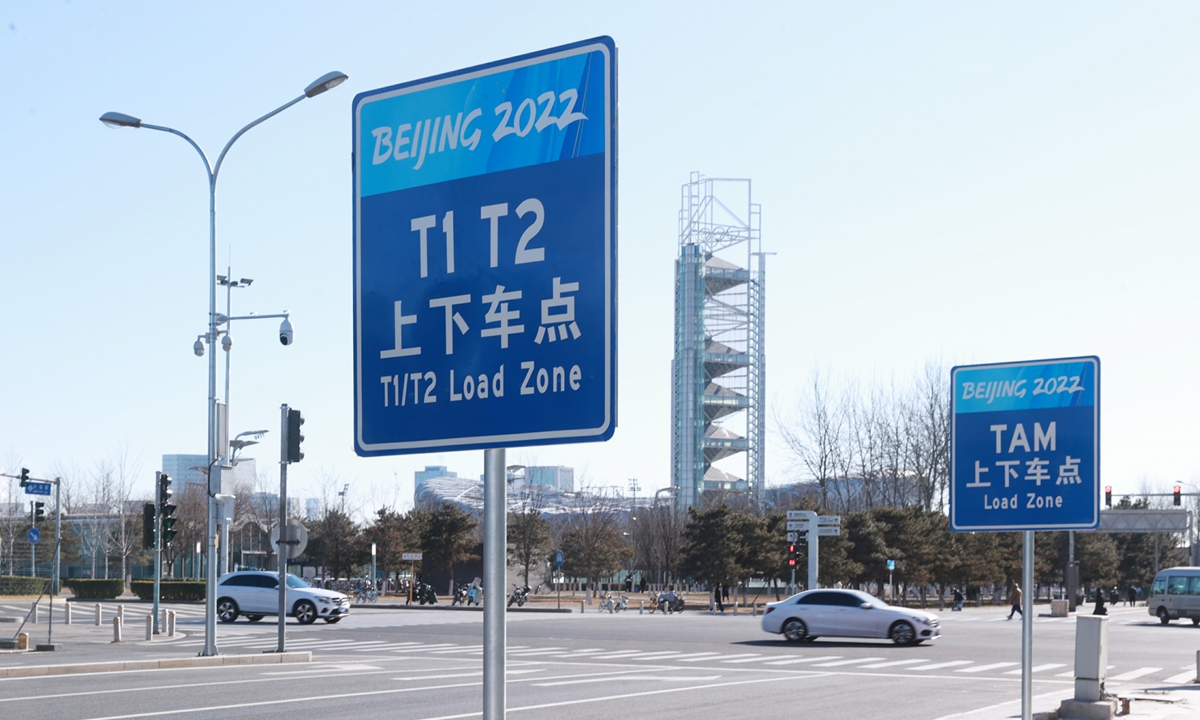
"Beijing 2022" signs are put up along roads surrounding the main media center for Beijing 2022 Winter Olympics on December 24, 2021, showing visitors where to get on and off shuttles. Photo:cnsphoto
Facing dual COVID-19 risks from a domestic flare-up and the raging Omicron variant overseas, Beijing on Friday tightened epidemic prevention and control measures and vowed to strictly adhere to a dynamic zero policy as Chinese New Year and the Beijing Winter Olympics approach.
Beijing's moves came one day after Xi'an, capital city of Northwest China's Shaanxi Province, known for its Terracotta Warriors, imposed a citywide lockdown following a fresh flare-up that spilled over into six cities including Beijing.
Chinese health analysts said the local outbreak in Xi'an, which occurred around 40 days ahead of Beijing 2022 Winter Olympics, increases the epidemic prevention pressure for China, but with timely and precise measures, experience in quelling local outbreaks and high vaccination rate among the Chinese population and participants of the Games, China will ensure a safe international sports event.
Xu Hejian, a spokesperson from the Beijing government, said at Friday's media briefing that Beijing had revised its COVID-19 prevention and control measures, calling on residents to spend the upcoming holidays - New Year's Day and Spring Festival - in Beijing. The new measures apply to cases of locally transmitted infections in Beijing, residents in the district where reported cases are not allowed to leave the capital other than for essential reasons, and residents in the city's townships where reported cases are restricted from leaving Beijing, Xu said.
Xu said that the Beijing government encourages companies to adopt flexible work hours and help employees avoid leaving or entering Beijing during peak periods. Anyone returning to Beijing is required to present a negative nucleic acid testing result issued within 48 hours and a green health code.
Beijing also announced the limiting of family gatherings to 10 people, and strict controls on national conferences and training events held in the city.
Chinese health analysts said epidemic prevention and control was crucial for China's political center Beijing, where the Winter Olympics will be held in February.
Wang Guangfa, a respiratory expert at Peking University First Hospital, told the Global Times on Friday that Beijing's measures were revised promptly after assessing the risks, as the arrival of foreign delegations will add to the pressure facing the capital in preventing imported cases in light of the Omicron storm in many countries, and if locally-transmitted cases spread to Beijing triggering a local outbreak, it would be much harder for China to hold the international sports event.
The Omicron variant, which is now dominant in the US, has pushed the daily case count higher than the peak of the Delta wave, the New York Times reported on Thursday. In Europe, UK this week has been reporting the highest daily case numbers since the pandemic began.
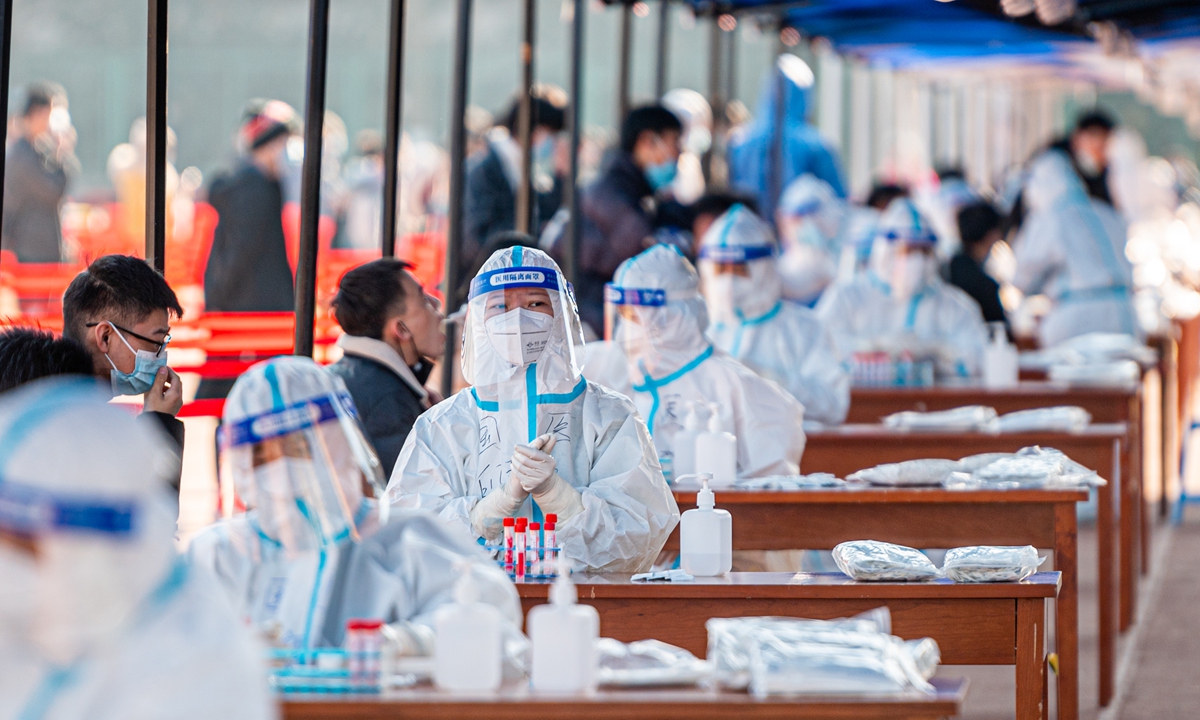
Medical staff conduct nucleic acid tests at the Northwestern Polytechnical University in Xi'an, Northwest China's Shaanxi Province on December 21, 2021. Photo: VCG
Xi'an, which is two hours away from Beijing by airplane, has reported multiple transmission chains and unidentified hidden local community transmissions this month. The city imposed a lockdown on Thursday, just 40 days ahead of the Winter Olympics. As of late Thursday, Xi'an had reported 234 cases since December 9.
Local disciplinary authorities have punished 26 people and four local Party organizations and other institutions for inadequate epidemic prevention efforts in the latest flare-up.
On Friday, local health authorities explained to the public that the strict lockdown measures were adopted considering the light symptoms of patients in early days, and infections found in mass screenings suggest a high risk of community outbreak.
The outbreak was caused by the Delta variant, which does not transmit as fast as Omicron but still has strong infectivity. Reducing people's movements and gatherings and slowing the city down is the method used in the race against time to curb the virus, the local authority said.
Chinese health experts believe Xi'an will report more cases in the following days and the outbreak may spread to more provinces and cities, since its epidemiological investigations have not determined the transmission chains, and the cold weather may exacerbate the problem, since the city is already facing the dual challenge of reporting both COVID-19 cases and hemorrhagic fever cases.
Under such circumstances, Wang said Beijing must enhance monitoring so that the city can detect infections quickly.
Wang said it's very likely that Beijing will report cases during the Winter Olympics, but he is confident that China, with its experience of successfully quelling local outbreaks in the past year, will keep case numbers low, and with the high vaccination rate among Chinese people and Games participants, China will surely hold a safe and successful sports event, he said.
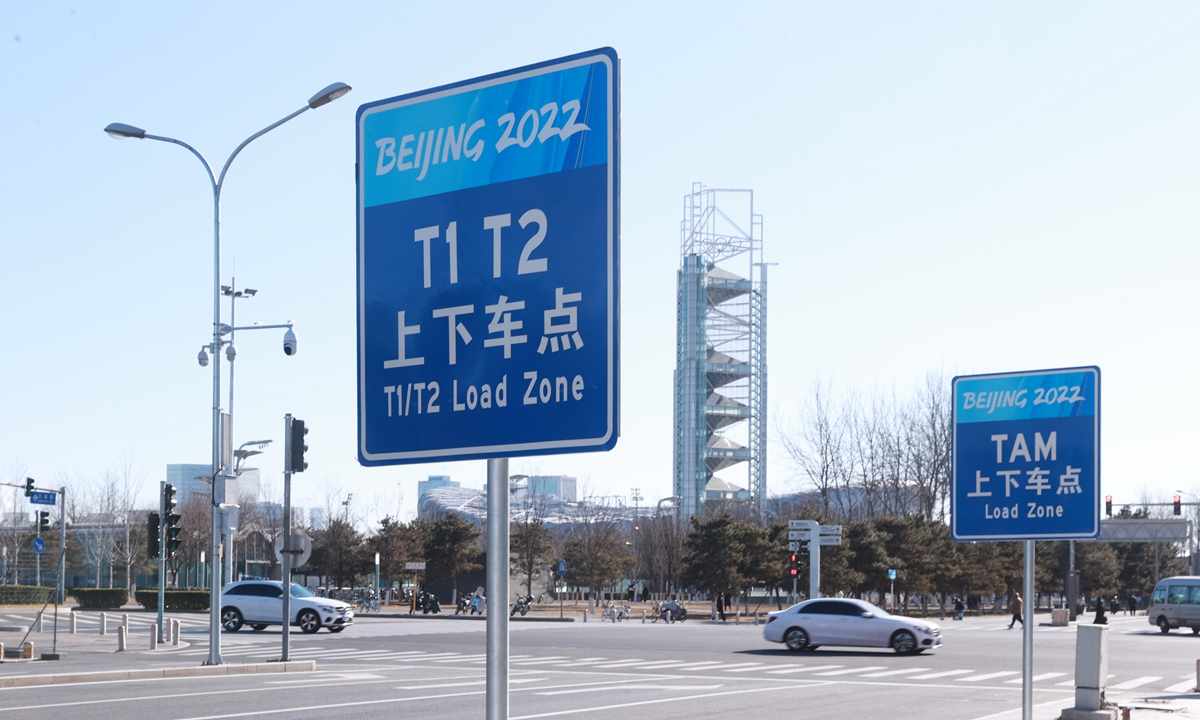
"Beijing 2022" signs are put up along roads surrounding the main media center for Beijing 2022 Winter Olympics on December 24, 2021, showing visitors where to get on and off shuttles. Photo: cnsphoto

